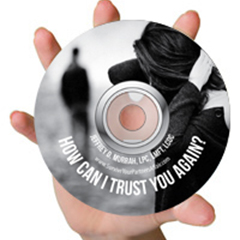With tears in her eyes, and mascara running down her face, Emily turned to me and managed sobbing out, “Should I stay or should I go?” Emily was torn between these options. She wanted someone to tell her what to do.
This is a question that many counselors dread, including myself. With that question, Emily let go of responsibility for her marriage. She was tired of hurting and all the going back and forth. Her husband’s affair had her rethinking many things about herself, her marriage and the direction of her life.
The “Should I stay or should I go?” question is the marriage therapist equivalent of the fisherman’s quandary of “fish or cut bait?”.
After a couple of moments, Emily managed regaining her breath along with slowing down her crying. “It hurts so much.” She needed the silence in order to gather her thoughts. She remembered how in an earlier session I had pointed out that she often filled up space with talk so that she did not have to face her feelings.
“I’ve never had to deal with this before…I just want to know what to do”.
On hearing what she was saying, she could finally see how some of the pieces in her life could fit together. Like a jigsaw puzzle, she began making some connections. Emily realized that it was not just about the affair. She often relied on her husband to make choices, and now she had to make them herself, and that scared her.
Once that piece was in place, she saw another one. She recalled that her parents often made choices for her as well. It felt safer back then. Now she was the one making choices. It was easy to complain about her husband’s choices or her parents, but now she was the one making choices.
She took a slow deep breath and looked up “I don’t like having to make choices”
I responded “…and how will it help if I make that choice for you?”
You may have found yourself asking the same question as Emily’s “Should I stay or should I go?” You may have different reasons for asking the question. Some of those reasons may be driven by emotion and some driven by logic, while others may be driven by habit. Whatever your reason, in asking the question, you are putting others in charge of your life.
When you put others in charge, it means you are not in charge. Asking others to make tough choices for you often takes off pressure, but it also avoids responsibility. It is natural to want to be taken care of when you are hurting. In the case of an affair, you have to deal with the hurt standing up. It may be nice to avoid responsibility, yet that is part of what created the mess in the first place…somebody wanted to avoid responsibility. They wanted gratification without responsibility.
Getting you out of a mess often requires you doing the opposite of what started the mess. A good place to start is with responsibility. A good place to start having responsibility is with your own choices. You can start assuming responsibility for your own choices rather than asking others to make choices for you.
There are other steps after assuming responsibility for choices, yet it is often a place where people start recovering. This is the kind of things you will learn in the Affair Recovery Workshop to help you through recovery.
Best Regards,
Jeff















